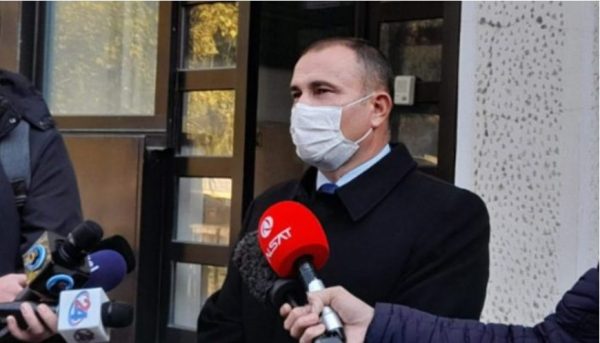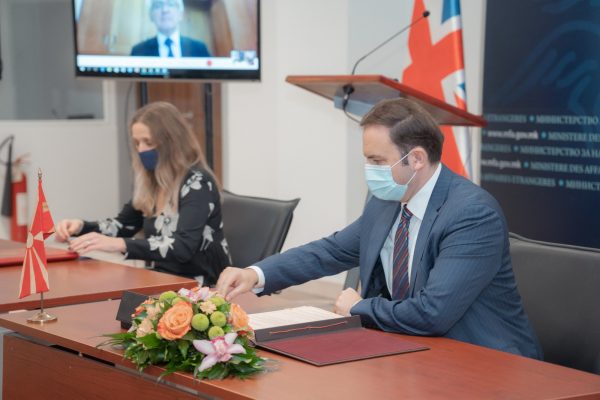Crisis Management Center (CMC) director Stojanche Angelov said Thursday that heads of hospitals request increased presence of army members as people feel safer and more secure when the army is there.
Angelov told 24 TV that the Main Crisis Management HQ holds regular sessions and is ready to respond at any time, if needed. He noted that members of the security forces can be deployed in less than an hour.
According to the CMC director, the country is not only facing a coronavirus crisis but also a migrant crisis. He said it’s been reported that COVID-19 has hit some refugee camps hard, so every entry, movement and transit of these people across the country is an additional health risk for citizens.
At the moment, Angelov stressed, in addition to assisting the police in hospital security, our troops are also deployed on the southern and northern borders.
“The country is currently facing two states of crisis. One is due to COVID-19. – Во овој момент во земјава имаме две кризни состојби, едната е со КОВИД-19. We’re into the first month since it was imposed, and it will be extended for another six months. The second state of crisis is not nationwide but only on the southern and northern borders, and it is related to the migrants, their entry and transit across North Macedonia. In addition to the security risk, migrants could spread the infection. We have information that COVID-19 has hit hard some refugee camps due to poor hygiene conditions, and not to mention physical distance,” Angelov noted.
Asked if there’s pressure on southern borders, Angelov said he had information, but it was confidential.
As regards additional hospital beds in sports halls in the capital, Angelov said at this point such option was not on the table.
“At this point we haven’t discussed that. According to the Commission for Infectious Diseases, the disease is under control, regardless of the fact that the numbers are relatively high. Our efforts are focused on raising awareness about protective measures and that’s the real recipe for the protection of public health. If the number of patients and the pressure on the hospital capacities mounts, then we will be forced to use the capacities of private health institutions as support to the public health system,” Angelov said.

















